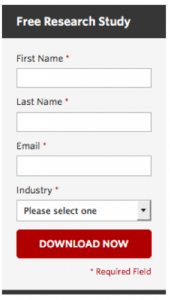ZCDA enables applications to access the memory location where the data is stored directly, saving time and improving performance.
Faster and more efficient data processing techniques are needed as the volume of data processed grows. “Zero copy data access” may revolutionize how data is processed. It’s already making waves in the customer data platform space.
What is Zero Copy Data Access?
Zero copy data access (ZCDA) is a technique that allows data to be transferred between applications without being copied from one memory location to another. It can improve the performance of data-intensive applications by reducing the amount of time it takes to move data between different parts of the system.
ZCDA eliminates this step. It enables applications to access the memory location where the data is stored directly.
Zero copy data access in computing
Zero copy data access is used in a variety of applications. For example, Apache Arrow is an open-source software project that provides a cross-language development platform for in-memory data. Arrow uses zero copy data access to enable fast and efficient data transfer between different programming languages.
ZCDA can also be used to further improve the performance of in-memory databases by reducing the amount of time it takes to move data between different parts of the system.
Salesforce/Google ZCDA partnership
Google and Salesforce recently partnered on a ZDCA initiative. There are two elements. Data can be stored in Google’s Big Query dataware house and accessed by Salesforce. In addition, the partnership gives zero copy access to Google’s Vertex AI to train AI models on Salesforce data. Previously, data would have been copied into Vertex to train the models, and then copied back into Salesforce. With zero copy, models can be trained on Salesforce data that remains in Salesforce.
What it means for CDPs
A CDP is packaged software that seeks to establish comprehensive customer profiles in one unitary database. One challenge with traditional CDPs has been ingesting data from multiple sources, from offline transactions to social media, and appending it to the correct customer profile. That’s a time-consuming and never-ending task. Another perceived disadvantage is that the CDP itself can become yet another data silo, separating marketing, sales and service data from the many other forms of data a business collects.
One increasingly popular solution to these challenges is to offer the option of allowing the CDP to, in effect, drill down into an organization’s existing data lake — storage, in other words, where all the data is sitting — and utilize that data without importing it into the CDP.
Examples include Simon Data, a Snowflake Data Cloud partner, that has zero-ETL (extract, transform, load) technology at the heart of its offering, and enterprise CDP ActionIQ with its HybridCompute option.
The future of Zero Copy Data Access
Future applications of zero copy data access include improving the performance of emerging technologies such as AI and machine learning, as well as making accessing data stored in blockchain applications more efficient.
By eliminating the need for copying data between memory locations, zero copy data access can significantly improve the performance of applications, including marketing technology applications. As marketers continue to generate more and more data, techniques like zero copy data access will become increasingly important in helping us manage and process that data more efficiently.
The post Zero Copy Data Access: The Future of Data Management? appeared first on MarTech.
MarTech(6)




